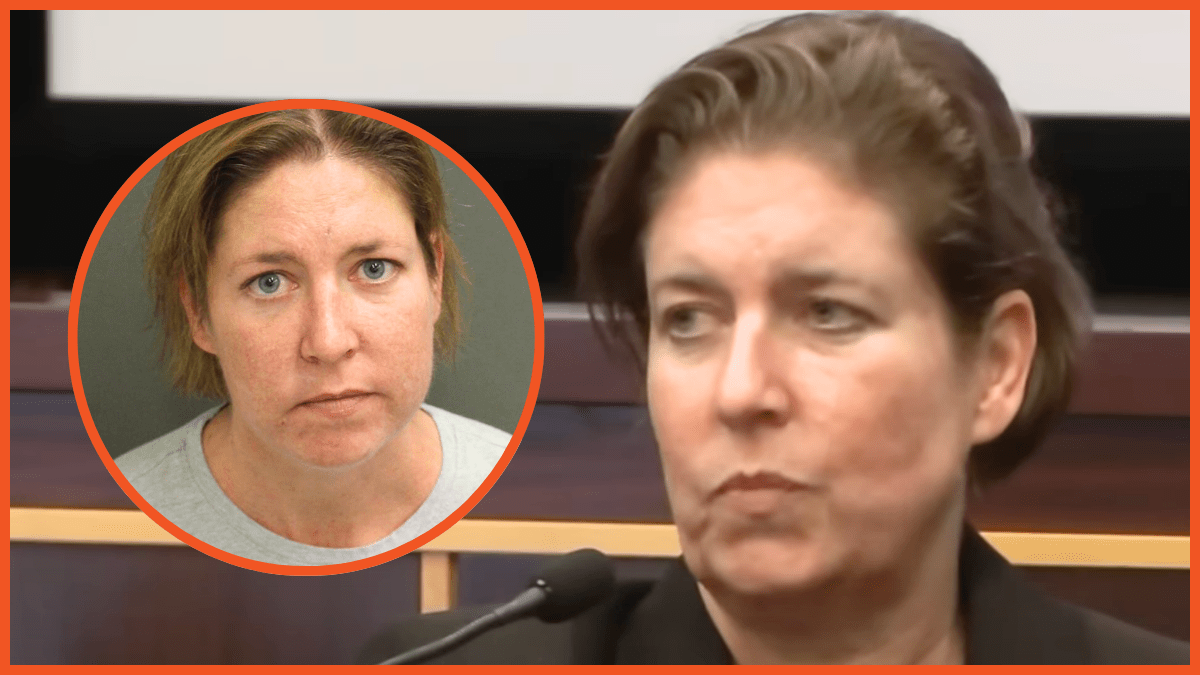Content warning: This article describes murder and intimate partner violence. Please take care while reading.
Sarah Boone, accused of killing her boyfriend Jorge Torres Jr. in a broken suitcase at her Florida home four years ago, has testified at her trial. She told the jury Torres got into the suitcase willingly because the couple “thought it was funny.”
At her trial, Boone, 46, testified Torres was small in stature, and after a long day of drinking at Boone’s home, the couple were playing a game of hide and seek when Torres decided to get inside the suitcase on his own, and she zipped him up. “We thought it was funny, and we’re joking about how he was small enough to fit inside of the suitcase,” Boone said.
On the stand, Boone added, “From there, we were laughing about it, and it was just strange that he was small enough to fit in there, and then I kind of moved it around a little bit with him in the suitcase still. It was still funny that he was still in the suitcase. I think he and I couldn’t believe that he could fit in the suitcase.”
Likely panicking, Boone said Torres’ tone changed once he was trapped inside, and they began arguing as Torres struggled. At some point, she said she started shaking the suitcase as Torres tried to escape, and finally, Torres managed to free a hand, so she grabbed a baseball bat and “poked” at Torres to keep him trapped.
The cell phone footage
Once the suitcase fell over, Boone took cell phone footage of Torres trapped in the suitcase, which was played in court, and in it, Torres can be heard calling Boone’s name and telling her he can’t breathe. Boone can also be heard telling Torres, “For everything you’ve done to me, f*** you,” “That’s my name; don’t wear it out,” and “You should probably shut the f*** up.” Boone later told the police, “I thought it was the boy crying wolf.”
Explaining why she didn’t help Torres, she said she feared for her safety if he got out, but she never meant to kill him. With him trapped inside, Boone added, she could speak to her boyfriend “in a manner I ordinarily would not have the ability to do.”
The next morning
According to Boone’s testimony, she left Torres inside the suitcase, went upstairs, and fell asleep. When she woke up around noon the next day, Torres was nowhere to be found, and she figured he left.
However, she spotted the suitcase and remembered what happened the night before. She unzipped it and found Torres still inside. Boone said she tried shaking him, and then after she pulled him out, she tried CPR, but Torres was unresponsive. Boone contacted her ex-husband first, and he told her to call 911. Torres’ asphyxiated, a forensic pathologist testified at Boone’s trial. Torres’ death was ruled a homicide.
Evidence of intimate partner violence
Also on the stand, Boone recalled an instance of intimate partner violence when she said Torres stabbed her in the leg with a steak knife following a dispute over dinner. Torres was drunk at the time, she said. Boone said her injuries were so severe she asked him to drive her to the hospital, but he told her before she called 911 that they needed to agree on a cover story so he wouldn’t get in trouble. Once they managed to get to the hospital, they decided that she would say they were “sword fighting” with steak knives, and the stabbing was an accident.
Boone’s defense attorney, James Owens, said in court, “The prosecutors mentioned that she wanted him to die. The furthest from the truth, she loved him. She hated the abuse. She couldn’t leave. She tried, she tried kicking him out six or seven times. He kept coming back. She changed the locks. He kept coming back. She didn’t have the family. She didn’t have the support. She was weak, vulnerable.”
Once arrested, Boone pleaded not guilty to second-degree murder charges. At first, she told the police Torres’ death was an accident, but then she said it was self-defense. Closing arguments are expected Friday, and Florida news outlet WFTV says a verdict could come the same day.
If you are experiencing domestic violence, call the National Domestic Violence Hotline at 1-800-799-7233, or go to thehotline.org. All calls are toll-free and confidential. The hotline is available 24/7 in more than 170 languages.
